On September 11 and 12, 2025, Beck Institute held its first in-person training in over five years. Drs. Judith Beck, Allen Miller, and Sofia Chernoff led CBT for Complex Cases, giving participants an inside look at how to provide effective treatment for clients with challenging problems from their own clinical and supervisory work.
Before the COVID-19 pandemic, Beck Institute held between 12 and 20 in-person trainings each year. Since then, increasing our virtual and on-demand training options has expanded our reach, allowing us to train health and mental health professionals in over 130 countries. However, as the world adapted and once again became safe to gather in person, we missed the energy and connection of in-person training. We planned this workshop using a hybrid model, giving trainees the option of joining in person or online from anywhere in the world. We also offered our virtual trainees the opportunity to participate using live language interpretation channels in both Arabic and Russian.
As we planned the training, we quickly remembered how much work goes into planning an in-person event—from the technical aspects to the hospitality we show our trainees by offering discounted hotel rates, local area guides, and refreshments throughout the training. From start to finish, we wanted trainees to feel like welcome members of our CBT community—and to leave inspired to continue their learning.
Delivering a Meaningful Experience to Trainees from Around the World
We are happy to say that our work paid off! We welcomed 16 in-person trainees and 78 virtual trainees, for a total of 94 participants that benefitted from direct instruction, roleplays, and question-and-answer sessions with BI’s leadership team. And the feedback we received from participants was excellent.
Zubia B. from Pakistan told Dr. Miller, “I would like to extend my heartfelt gratitude for conducting such a wonderful workshop. I am especially thankful for the extra effort you put into presenting a case session; it was both insightful and inspiring. Your acting during the demonstration… made the concepts come alive for us in a way we will not forget.”
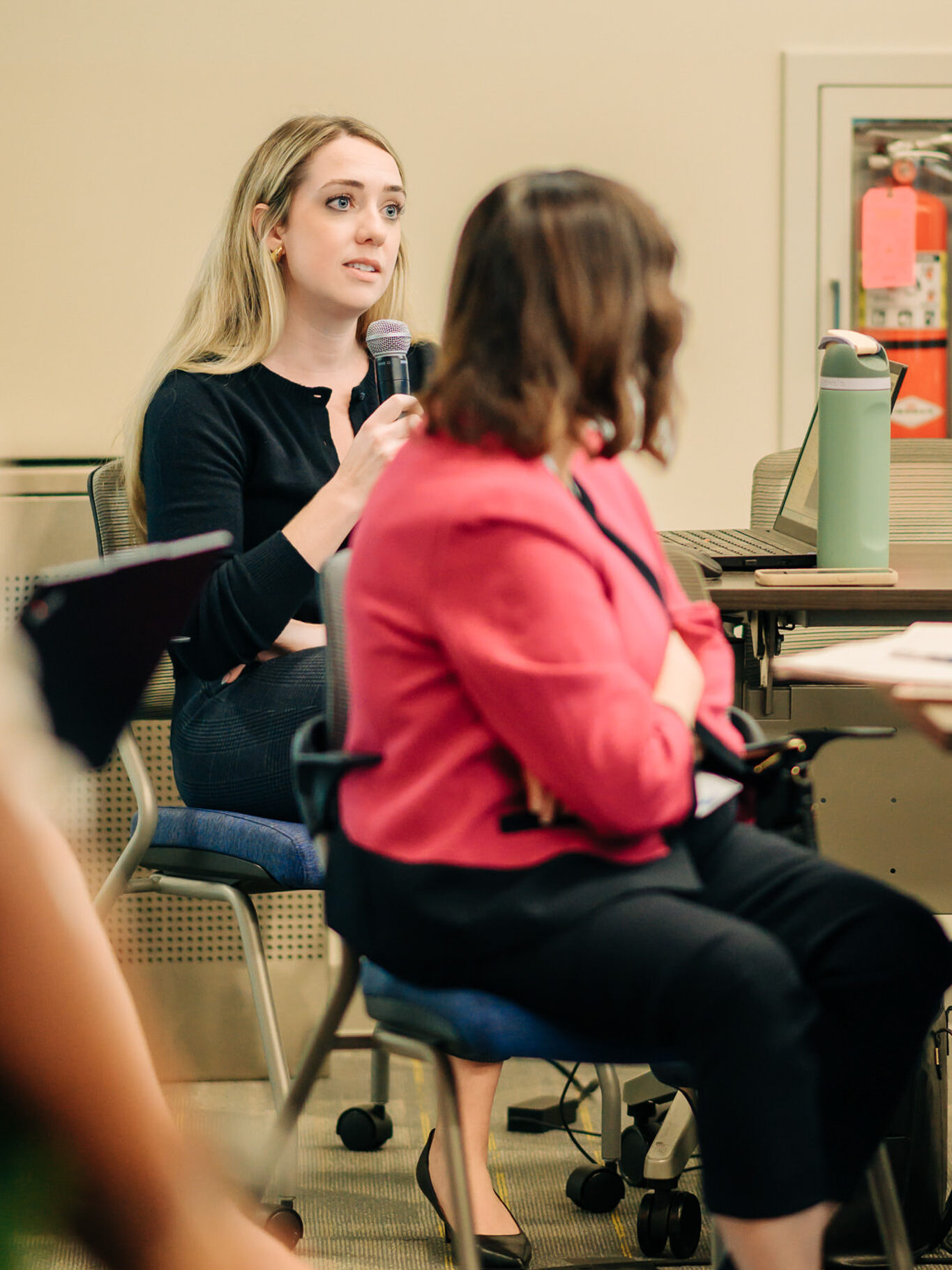
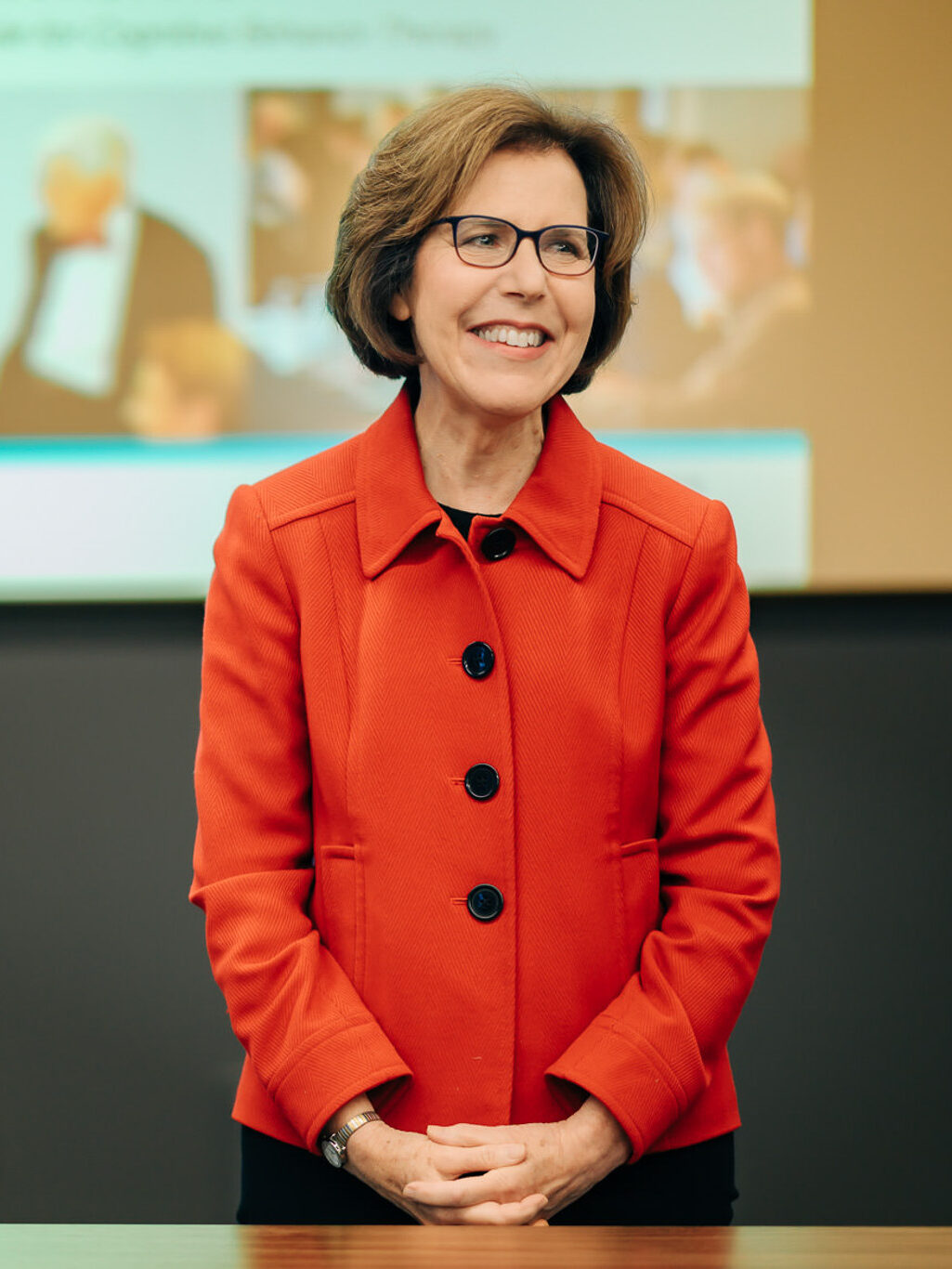
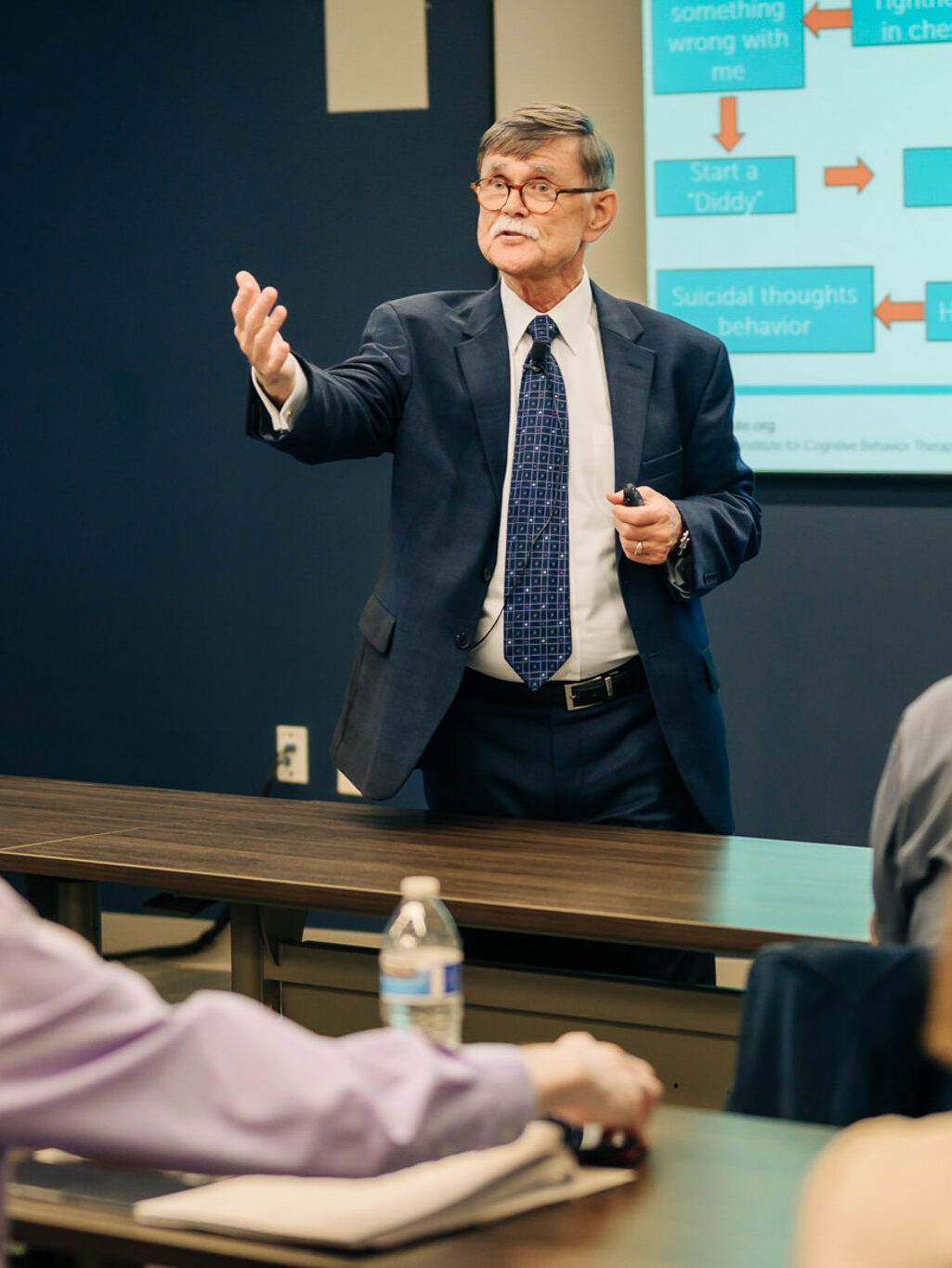
Using Case Studies to Illustrate Key Concepts
On day one, Dr. Beck presented the case of “Pam,” a 16-year-old girl struggling with anxiety, depression, self-harm, and suicidal ideation. Pam had difficulty engaging in treatment, typically responding to the therapist’s questions with one word answers. She had been “fired” by several previous therapists.
Using recorded roleplays to demonstrate techniques, Dr. Beck explained how she was able to move Pam from the maladaptive mode into the adaptive mode by asking her questions about topics that interested her, like hair and makeup. She also explained how using a strength-based approach to treatment and identifying Pam’s values and aspirations helped Pam feel more in control and invested in the process of therapy. Dr. Beck also discussed how to specify and address challenges in therapy, with specific attention to identifying and repairing ruptures in the therapeutic relationship.
Throughout the presentation, the audience asked questions, presented challenging situations from their own practices, and got feedback from Dr. Beck and other participants. Beck Institute post-doctoral fellow Dr. Morgan Hagner took questions from the virtual audience and presented them to the in-person group for further discussion.
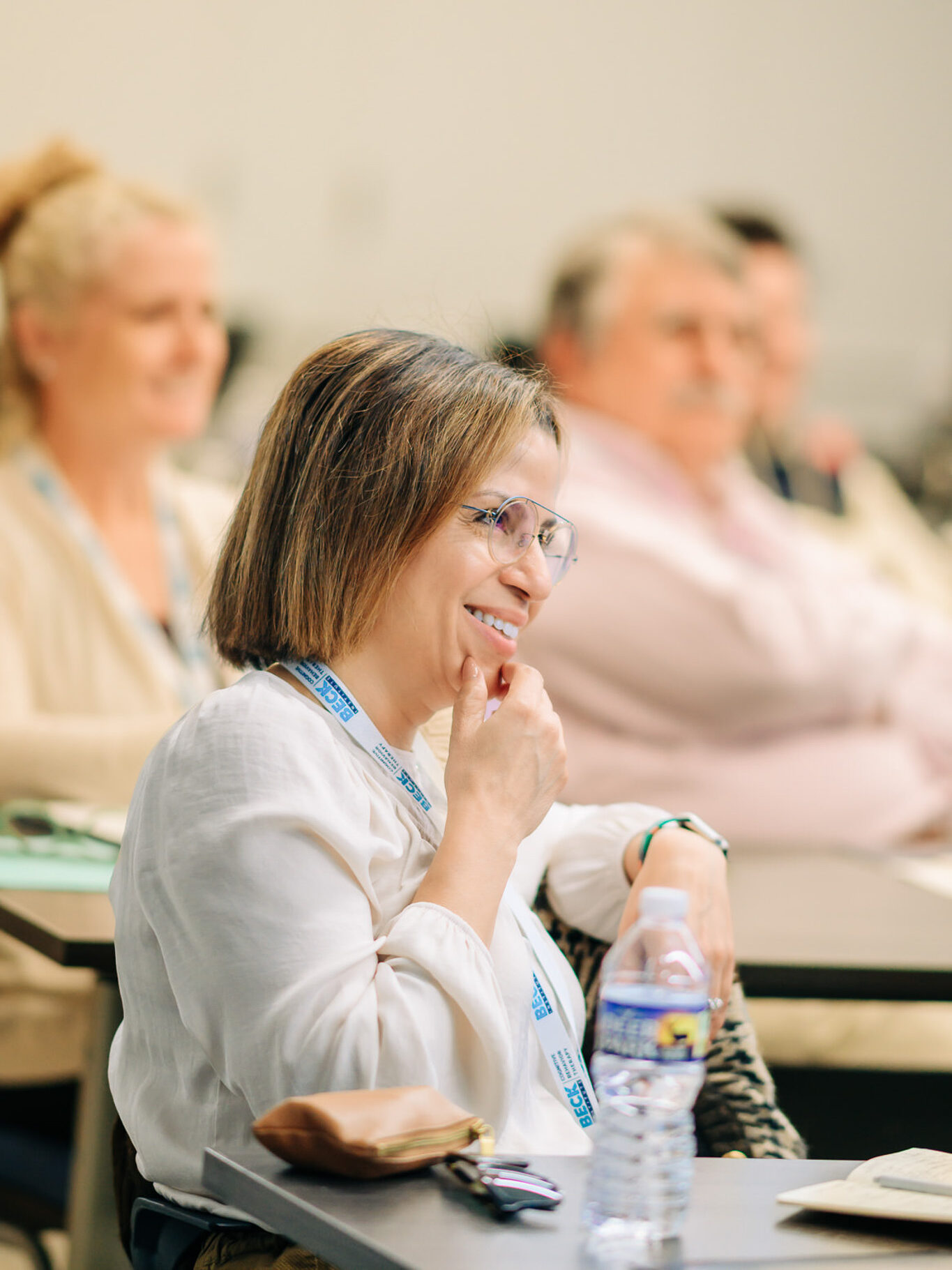
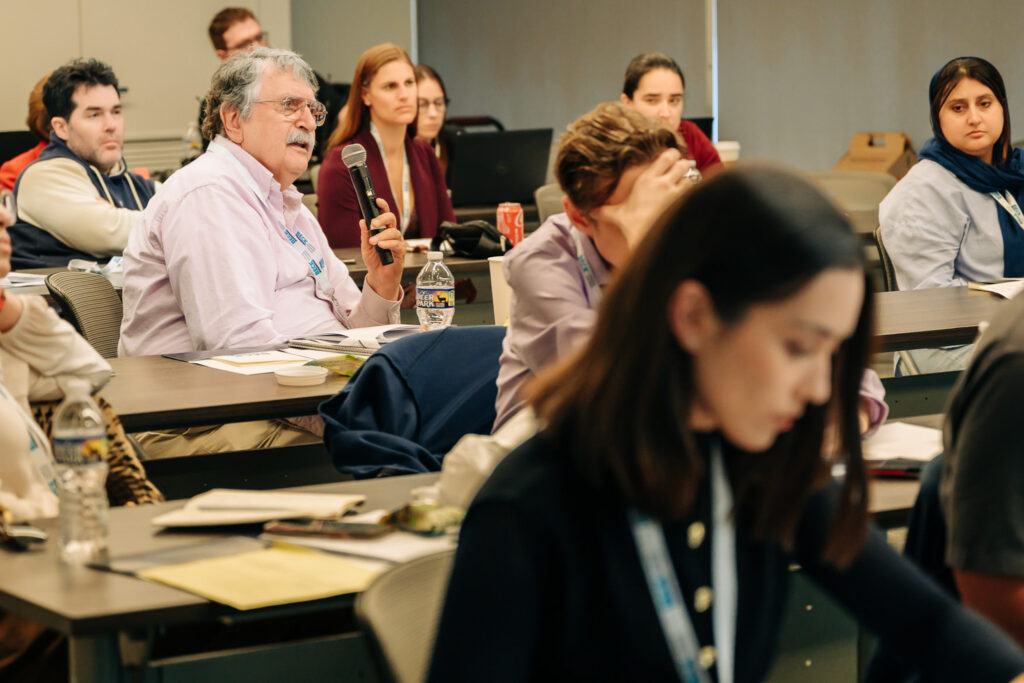
Two Complex Cases
On day two, Dr. Chernoff began by presenting the case of “Robert,” a 62-year-old man with complex medical problems and chronic pain, in addition to mental health issues like low mood, anxiety, difficulty concentrating, anhedonia, and passive suicidal ideation. Dr. Chernoff explained that in her first sessions with Robert, he seemed to be a model patient. He was engaged in treatment, interested and invested in the interventions, and agreeable to completing his Action Plans. However, in Robert’s fifth session, things changed drastically.
By watching a live roleplay with Dr. Miller, participants learned how Robert had become withdrawn, angry, and hopeless. He slouched in his seat and avoided eye contact with his therapist. He repeatedly expressed how much pain he was in and insisted that treatment wouldn’t help. Dr. Chernoff validated his feelings, reflecting back how difficult it must be to experience constant pain. She eventually drew Robert out by asking him about riding motorcycles, one of his former hobbies.
In the afternoon, Dr. Miller presented the case of Barbara, a 64-year-old female with anxiety and OCD and a very long history of psychiatric treatment. He began by showing a video of Barbara introducing herself to the audience, discussing her background, hobbies, interests, and values. This helped participants understand Barbara and see her as more than just a diagnosis. Dr. Miller then showed several recordings of actual therapy sessions with Barbara, enabling participants to see CBT for complex cases in action, ask questions, and receive feedback.
The success of this workshop reaffirmed the importance of helping clinicians feel supported, connected, and inspired. Complex cases can challenge even the most experienced therapists, but this workshop demonstrated how CBT continues to evolve to meet those challenges. We look forward to hosting future events that bring our global CBT community together to learn new skills, exchange ideas, and advance the practice of evidence-based therapy.
Learn more about CBT training with Beck Institute.